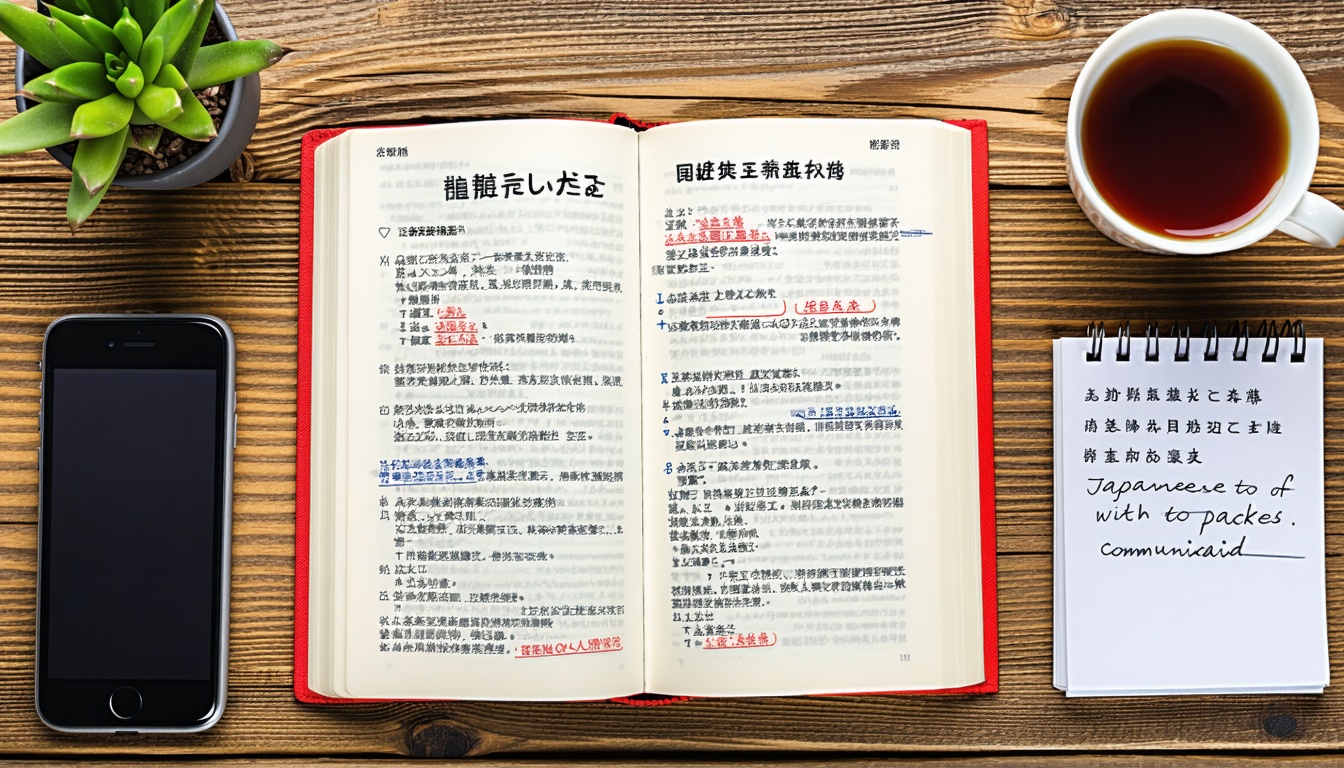Stay Prepared: Must-Know Japanese Weather Phrases

Picture this: you’re in Tokyo’s bustling streets when dark clouds roll in, and you realize you need to ask if the rain will stop before your next stop. Without the right phrase, you might end up drenched or scrambling for cover. Mastering Japanese weather phrases gives you the confidence to chat about forecasts, check sudden showers, and plan your day like a local. In this ultimate guide, you’ll explore essential weather terms, key grammar patterns, and handy tips for talking about weather in Japanese.
Learn weather nouns
First, let’s cover the building blocks: weather nouns. These words let you name what’s happening outside your window.
Japanese Romaji English
天気 tenki weather
晴れ hare sunny, clear weather
雨 ame rain
雪 yuki snow
風 kaze wind
霧 kiri fog
にわか雨 niwaka-ame shower
台風 taifuu typhoon
雷雨 raiu thunderstorm
雹 arare hail
-
Tenki (weather) is your go-to term when asking for or checking forecasts.
-
Use niwaka-ame for those sudden, pop-up showers that soak everyone in minutes.
-
If you want to talk about a big storm, taifuu and raiu will cover typhoons and thunderstorms.
Want to nail the pronunciation? Check out our japanese pronunciation guide for tips on sounding natural.
Master weather adjectives
Next up are the adjectives that describe those nouns. These help you say whether it’s hot, cold, or humid outside.
Japanese Romaji English
暑い atsui hot
暖かい atatakai warm
蒸し暑い mushi-atsui humid
寒い samui cold
涼しい suzushii cool
強い tsuyoi strong
Common adjectives used to describe weather conditions include atsui (hot), atatakai (warm), mushi-atsui (humid), samui (cold), and suzushii (cool) (All About Japan).
-
Use mushi-atsui for those sticky summer days when the humidity climbs.
-
Say suzushii for a refreshing breeze, especially in late spring or early autumn.
-
Tsuyoi pairs well with kaze (wind) to say kaze ga tsuyoi desu (The wind is strong).
Pairing these adjectives with our nouns makes your weather chat crystal clear.
Describe current weather
Now let’s string nouns and adjectives together to talk about what’s happening right now. In Japanese, you often use “ga” to mark the subject, and “desu” to finish politely.
Examples:
“晴れです” (Hare desu) It’s sunny.
“雨が降っています” (Ame ga futte imasu) It’s raining; lit., “Rain is falling” (All About Japan).
“風が強いです” (Kaze ga tsuyoi desu) The wind is strong.
“曇りです” (Kumori desu) It’s cloudy.
Curious how to say “It’s snowing”? Try “雪が降っています” (Yuki ga futte imasu).
Key pattern for progressive weather: noun + ga + te-form verb + imasu. That te-form tells you the action is in progress.
-
Ame ga futte imasu: It’s raining.
-
Yuki ga futte imasu: It’s snowing.
If you need to ask “Is it going to keep raining?”, you can say: “このまま雨が降っていますか?” (Kono mama ame ga futte imasu ka?)
For more on time-related questions—like asking if the rain will clear by 3 pm—see japanese time expressions.
Talk about weather changes
To predict or discuss upcoming changes, Japanese uses “ni narimasu” (will turn into) or “ni naru deshō” (will probably become).
Examples:
“雨になります” (Ame ni narimasu) It will turn to rain.
“雪になるでしょう” (Yuki ni naru deshō) It’ll probably become snow.
“曇りになるでしょうか?” (Kumori ni naru deshō ka?) Do you think it’ll become cloudy?
Use the polite form deshō when you want to sound a bit more tentative, just like adding “probably” in English.
When you hear weather forecasts on the train, they might say: “午後からにわか雨になるでしょう” (Gogo kara niwaka-ame ni naru deshō) Expect sudden showers from the afternoon.
For help understanding public transport announcements affected by weather, check our japanese train announcements translation.
Speak seasonal terms
Japan’s four seasons are woven into daily life, festivals, and even weather chat (JapanesePod101).
Season Japanese Romaji Months
Spring 春 haru March–May
Summer 夏 natsu June–Aug
Autumn 秋 aki Sept–Nov
Winter 冬 fuyu Dec–Feb
Seasonal weather phrases to know:
-
梅雨 (tsuyu): rainy season in June and July, marked by steady showers.
-
秋晴れ (akibare): clear autumn skies after the heat of summer fades.
-
花粉症 (kafunshō): pollen allergy season in spring—handy if you’re sneezing outdoors.
-
初雪 (hatsuyuki): first snow of the year, a celebration for many photographers.
Fun cultural note: people hang teruteru bōzu (small rain dolls) outside their windows to wish for sunny days. If you spot these ghost-like dolls on balconies, you’ll know locals hope for clear weather.
Travel tip: Tokyo is lovely in April and May for mild weather and cherry blossoms. For detailed Tokyo travel phrases including seasonal chat, see basic japanese phrases tokyo travel.
Prepare for severe weather
Typhoons, heavy rain, and sudden storms are part of life in Japan—especially from late summer through early autumn. Here are phrases to stay safe and informed.
“台風が近づいています” (Taifū ga chikadzuite imasu) A typhoon is approaching.
“雷雨があります” (Raiu ga arimasu) There will be a thunderstorm.
“大雨警報が出ています” (Ōame keihō ga dete imasu) A heavy rain warning has been issued.
“避難場所はどこですか?” (Hinan basho wa doko desu ka?) Where is the evacuation shelter?
Use these phrases if you hear an alert or see government announcements on TVs and smartphones. If you want more on urgent response phrases, check our japanese emergency phrases.
Staying weather-aware can help you adjust plans, seek shelter, or simply enjoy a festival between showers.
Practice pronunciation tips
Good pronunciation keeps your phrases clear and friendly. Try these quick exercises:
-
Mimic Tokyo’s weather reports on TV or radio.
-
Use language apps with native audio—slow down clips to catch nuance.
-
Record yourself reading the tables above, then compare with online examples.
-
Practice with a Japanese friend or a tutor over video chat.
For more general tips on sounds and accent patterns, visit katakana hiragana basics and our japanese pronunciation guide.
Consistency is key—spend 5 minutes a day repeating weather phrases, and you’ll notice quick improvement.
Key takeaways
-
Review the core weather nouns and adjectives tables until they feel like second nature.
-
Use “ga + te-form + imasu” to talk about ongoing conditions and “ni narimasu” for predictions.
-
Learn seasonal terms like tsuyu (rainy season) and akibare (clear autumn skies) to connect with locals.
-
Memorize a few severe weather phrases so you can stay safe during typhoons or storms.
-
Practice pronunciation daily using apps, recordings, and friendly language partners.
With these tools in your pocket, you’ll chat about Tokyo’s weather like a seasoned commuter or savvy traveller.
Frequently asked questions
Q: How do I ask “What’s the weather like tomorrow?” A: Say “明日の天気はどうですか?” (Ashita no tenki wa dō desu ka?). You can swap 明日 (ashita) with 今日 (kyō) or あさって (asatte) for today or the day after tomorrow.
Q: How can I say “It’s going to be hot today”? A: Use “今日は暑くなるでしょう” (Kyō wa atsuku naru deshō). That adds a polite “probably,” perfect for weather predictions.
Q: What’s the phrase for “The rain will stop in an hour”? A: Try “一時間で雨が止むでしょう” (Ichijikan de ame ga yamu deshō). Use 止む (yamu) for “to stop.”
Q: How do I express “It’s really humid today”? A: Say “今日は本当に蒸し暑いです” (Kyō wa hontō ni mushi-atsui desu). 本当に (hontō ni) adds “really” or “truly.”
Q: How do I ask if the wind will calm down? A: You can say “風はやむでしょうか?” (Kaze wa yamu deshō ka?). This asks, “Do you think the wind will stop?”
Have more weather questions or a favorite phrase? Drop a comment and share your tips below!


